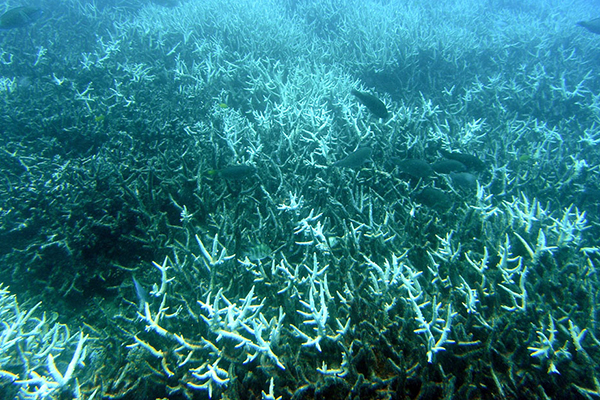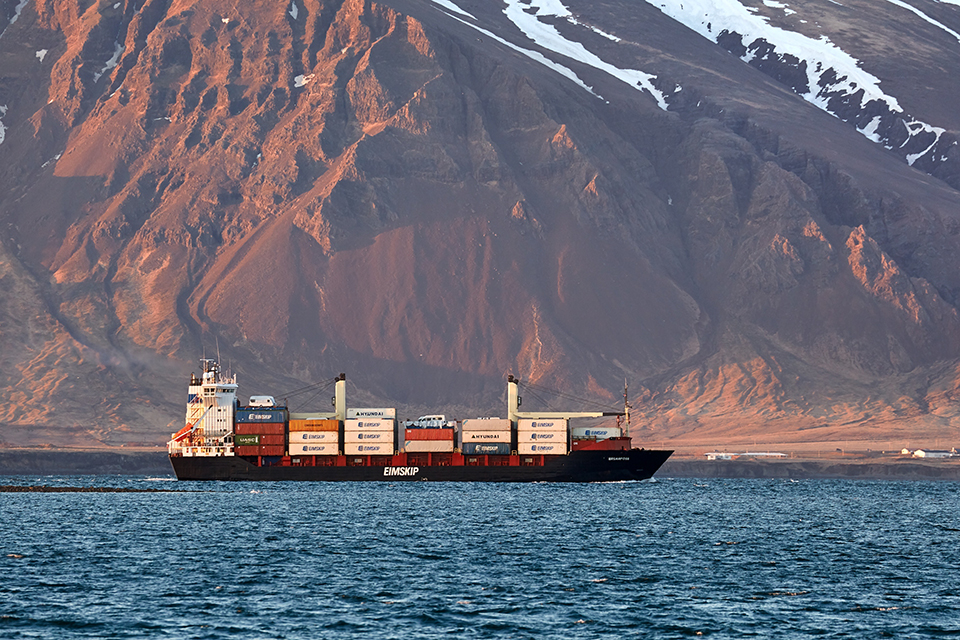New research shows ocean temperature in 2021 was the hottest ever recorded by humans

In 2021, the ocean temperature was the hottest ever recorded by humans, according to new research published in Advances in Atmospheric Sciences. It’s the sixth consecutive year that this record has been broken.
“Robust warming” was observed in the seven maritime domains of the Indian, Tropical Atlantic, North Atlantic, Northwest Pacific, North Pacific, Southern oceans and the Mediterranean Sea. Four out of seven domains showed record-high heat content in 2021.
“The regional and global changes both reveal a robust and significant ocean warming since the late-1950s – the entirety of the reliable instrumental record,” wrote the research paper’s authors.
The second hottest year was 2020 and the third was 2019. Kevin Trenberth, a climate scientist at the National Center for Atmospheric Research and co-author of the paper, told The Guardian that the ocean heat content (OHC) is “relentlessly increasing” globally and is “a primary indicator of human-induced climate change.”
“The long-term ocean warming is larger in the Atlantic and Southern Oceans than in other regions and is mainly attributed, via climate model simulations, to an increase in anthropogenic greenhouse gas concentrations,” wrote the authors. While natural variability and change in ocean circulation play important roles at the local level, the change is overwhelmingly driven by human-related changes in the atmospheric composition. The increased concentration of greenhouse gases in the atmosphere from human activities traps heat within the climate system and increases ocean heat content.
With the ocean absorbing more than 90 percent of the excess heat from human activities, there are “far-reaching consequences” to continuing the trend. A hotter ocean supercharges the weather systems, triggering severe weather events (such as more powerful storms, hurricanes, extreme rainfall), which increases the risk of flooding. Other effects of ocean warming include sea-level rise, coral bleaching, accelerated melting of the planet’s major ice sheets and changes in ocean health and biochemistry.
“As oceans warm, the water expands and sea level rises,” wrote the authors. “Preparing for sea-level rise and its implications for coastal communities are particularly important. […] Warming ocean waters threaten marine ecosystems and human livelihoods, for example, coral reefs and fisheries.”
This study provides the first analysis of recent OHC changes through 2021. Read the full article here.
Follow the Advocate on Twitter @GSA_Advocate
Now that you've reached the end of the article ...
… please consider supporting GSA’s mission to advance responsible seafood practices through education, advocacy and third-party assurances. The Advocate aims to document the evolution of responsible seafood practices and share the expansive knowledge of our vast network of contributors.
By becoming a Global Seafood Alliance member, you’re ensuring that all of the pre-competitive work we do through member benefits, resources and events can continue. Individual membership costs just $50 a year.
Not a GSA member? Join us.
Author
Tagged With
Related Posts

Responsibility
‘They thought we were crazy’: Behind one Faroe Island salmon farmer’s bold stance to reduce its carbon emissions
Hiddenfjord executive’s insistence that “fish should never fly” flies in the face of industry norm. This Faroe Island salmon company intends to do things greener.

Responsibility
A wider view: Consensus on seafood’s planetary and human health benefits
Several recent reports echo the message that eating sustainable seafood can help save the planet while making significant gains in public health.

Responsibility
‘Aquaculture could feed the world,’ concludes International Labour Organization
An International Labour Organization technical meeting affirmed that aquaculture has enormous potential to feed the world, but there are challenges to harnessing its full power.

Responsibility
Experts discuss climate change threats to aquaculture
How will climate change impact the aquaculture sector? Expert panelists discuss impacts to insurance and how data is driving decision-making.



